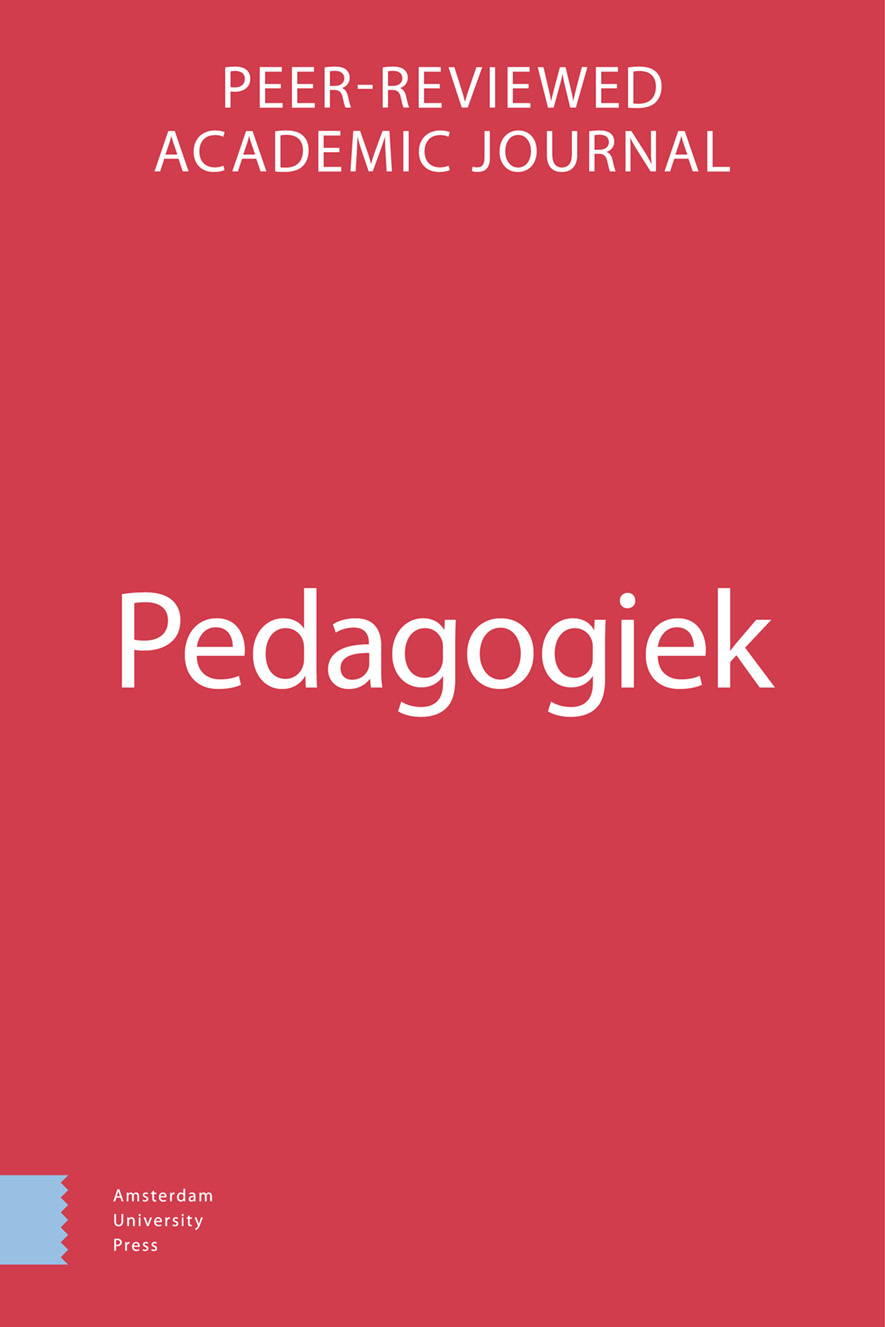-
oa Het belang van pedagogische tact voor het (h)erkennen van verwondering bij leerlingen
- Amsterdam University Press
- Source: Pedagogiek, Volume 40, Issue 1, Jul 2020, p. 5 - 21
-
- 01 Jul 2020
Abstract
The importance of ‘pedagogical tact’ in relation to experiencing wonder in the classroom.
Research has both empirically shown and philosophically defended the importance of ‘wonder’ in and for education. This paper aims to contribute to answering the question how, given the important role wonder can play in education, teachers can stimulate experiences of wonder in the classroom. An experience of wonder is an emotional experience, characterized by experiencing something new and unexpected, or incomprehensible, and which puzzles, surprises, fascinates, and/or astonishes the wonderer. In this paper we will describe four central elements of wonder, being alienation, non-enforceability, vulnerability and involvement. We will argue that the notion of ‘pedagogical tact’, as coined by Max van Manen, and interpreted here as a paradigmatic aspect of the pedagogical relationship, is particularly well-suited to express how teachers should respond to these four elements of children experiencing wonder.


